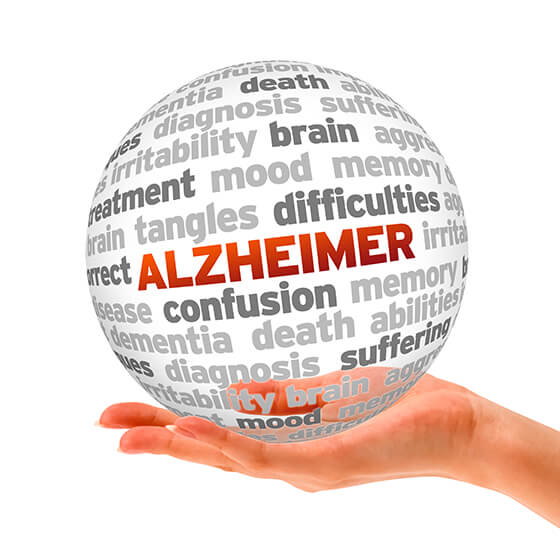When navigating a loved one through the stages of Alzheimer’s disease you may find that it is your own feelings that are the most difficult challenge. People with Alzheimer’s must change and adapt to their new circumstances and often these changes are out of their control. As people who love those with Alzheimer’s we change and adapt to these new circumstances as well, but we have a choice in the way that we adapt to these challenges. Often as this change comes, it builds resistance. It is natural to feel resistant to change especially when that change is a condition that affects your loved one and your family emotionally, mentally, and physically. Even if you are an efficient caregiver who can meet the emotional and physical needs of your elderly loved one, you may find that navigating your feelings may be the most challenging. Bearing witness to someone whom you love and respect becoming different because of their condition, especially since this difference is out of their control, can be difficult and distressing. As family, friends, and caregivers we naturally want to minimize or relieve any pain that our loved ones may feel but we are often unable to do so. We are also unable to bring back the person or even the memories and experiences of our elderly loved one. As caregivers, we must be strong and brace ourselves knowing that eventually even we may fade from the mind of our elderly loved ones.
Memory Deteriorates but the Heart Remembers
When we are confronted with the first experience of our elderly loved one not remembering us it can feel devastating. Memory and connection are very important to our humanity, so important that it can trigger some powerful emotions. The lack of recognition can feel like we are disconnected from our elderly loved ones however it is important to know that even though our memory may not be accessible to our elderly loved ones they may still feel our presence in their own way. The human experience is complex, your loved one may find comfort in your presence your touch the sound of your voice, and the feeling of being heard. Even though they may not have your memory accessible it does not mean that your presence goes unappreciated. People with Alzheimer’s can still feel, even through the fog of their condition. There is value in treating them with respect and lovingly caring for them. Even though they may not perceive it in the way a neurotypical brain would it does not mean they cannot perceive it in their own way. Hopefully, they can feel the connection through your effort and understanding. They are deserving of love, comfort, and connection to their loved ones.
Techniques for Communicating
As Alzheimer’s hinders the short-term memory first during the progression of the disease, you may be able to utilize their long-term memory to build that recognition. A common practice is to create a photo album or photo timeline that is easily accessible during visits. As an adult, they may not recognize you especially as time goes on however if you show them photos from 10 years ago, 20 years ago or childhood they may recognize you from their long-term memory banks. If you are using the timeline method then you should start with you as a child or when you first met them and ensure that you are labeling yourself so it is visible. Each picture in the timeline should represent you in progressing ages so if you are now 40 then start as a child and put pictures every five or so years. This exercise can help deep in recognition and also build the connection between who you were and who you are. A photo album can also be effective to build recognition for the family. Ensure that you label these pictures very clearly with large bold text, and it may be helpful to have a large family photo from a time that is easily recognizable for them with the names and labels under each person. This technique may not be effective once the condition worsens however it is nice to spend time with them and look over fond memories in a way to build connection, not only for them but also for you.
Coping with Memory Loss
Coping with your elderly loved one with Alzheimer’s memory loss can be both difficult and multifaceted. Each person, depending on their circumstances and their personality, will feel differently and navigate these emotions in a variety of ways. The relationship may change, and it will be difficult to both let go of the person they were and hold on lovingly to the person they are. If you feel that you are unable to be around the person because of your deep feelings, relying on your friends and family while you work through those feelings can be effective at building up your support system. Therapy may also be an option to help you take control of your feelings and aid you in rebuilding a new relationship with that person.
People with Alzheimer’s whose memories are declining are deserving of love and are capable of love. In their own ways, they find comfort and love from your presence and feel the loss when you do not visit. Building a peaceful relationship with them and being a source of support for them fosters a sense of connection that expands beyond memory.

